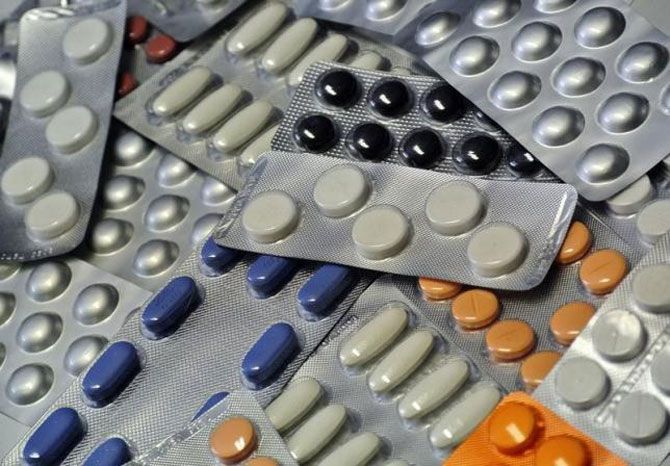Prices of 21 formulations or medicines that are under price regulation have been raised to ensure their availability. This would be a one-time increase of 50 per cent above the present ceiling prices, reports Sohini Das.

The government has for the first time invoked the Drug Price Control Order, 2013 (DPCO, 2013) to raise the prices of 21 formulations or medicines that are under price regulation to ensure their availability. This would be a one-time increase of 50 per cent above the present ceiling prices.
The pharma industry has been lobbying for this for almost two years, citing a steep rise in prices of active pharmaceutical ingredients (APIs) or bulk drugs largely imported from China.
The prices of APIs have gone up in the range of 5-88 per cent, depending on the products. API prices constitute 40-80 per cent of the formulation cost. For some medicines like paracetamol, the API cost is around 80 per cent of the finished product.
Paragraph 19 of the DPCO, 2013, deals with increase or decrease in drug prices under extraordinary circumstances.
The government noted that “in exercise of extraordinary powers in public interest, conferred by paragraph 19 of the DPCO, 2013”, the ceiling prices of 21 key formulations had been increased.
These formulations include common medicines like BCG vaccines, penicillin, malaria and leprosy medicines (Dapsone), life-saving drugs like Furosemide (used to treat fluid build-up due to heart failure, liver scarring, or kidney disease), vitamin C, some common antibiotics, and anti-allergy medicines. Sudarshan Jain, secretary general of the Indian Pharmaceutical Alliance, an industry group representing the big pharma in the country, welcomed the step.
“The industry has been seeking relief for a long time because API prices had shot through the roof and it was no longer viable to continue to sell at the fixed prices. The move is in a positive direction and would ensure that the patient benefits by ensuring the availability of these drugs in the market. Whenever any drug is in short supply, the patient moves towards a costlier drug,” he added.
The National Pharmaceutical Pricing Authority (NPPA) has been receiving applications for price increases under the DPCO, 2013, for two years. The applications cited reasons like increase in API cost, increase in the cost of production and exchange rates, etc. In a January meeting, the NPPA discussed 49 such applications, which talked of 72 formulations.
In March a committee was constituted to look into further examining 19 such formulations based on parameters of essentiality, the market shares of the applicant companies, available alternatives, etc. This committee recommended that these 19 formulations could be considered for a price increase.
In subsequent meetings, the NPPA shortlisted only 12 formulations and referred the issue to the Standing Committee on Affordable Medicines and Health Products (SCAMHP), the NITI Aayog, and the government for guidance on the modality and methodology to be followed for such cases.
The Standing Committee in its November 7 meeting recommended that the 12 formulations should be allowed a one-time 50 per cent increase. It also recommended the NPPA examine any other additional formulations or molecules for price increases and present them to the authority. Another nine formulations were considered in the subsequent meeting on November 26.
The NPPA said the unviability of these formulations should not lead to a situation where these drugs became unavailable in the market and the public was forced to switch to costly alternatives.
The chairman of a leading pharmaceutical company said: “While no company can stop manufacturing any drug under price control, it can reduce the volumes by around 25 per cent each year. Irrational price control has led to margin erosions and made manufacturing many drugs unviable.”
In a recent note assessing the impact of rise of API prices on drug pricing, Pricewaterhouse Coopers (PwC) noted: “Since the announcement of DPCO 2013, notified on May 15, 2013, the immediate growth had become a challenge for the industry as almost 652 formulations under 27 therapeutic segments of the National List of Essential Medicines (NLEM), which contributes to 18 per cent of the domestic formulation market, had come under the Price Control. Even in the following years, to date, the NLEM portfolio has grown much lower than non-NLEM portfolio.”












 © 2025
© 2025